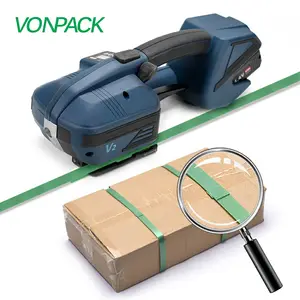
All categories
Featured selections
Trade Assurance
Buyer Central
Help Center
Get the app
Become a supplier

(8631 products available)



















































strap tool pet are essential components within the packaging and printing industry, specifically in logistics packaging. These products are designed to secure and stabilize goods during transportation, ensuring that items remain intact and undamaged. Typically made from durable materials, strap tool pet provide the necessary tension to hold products together, whether they are being shipped across the country or stored in a warehouse. With their ability to withstand various environmental conditions, strap tool pet play a crucial role in maintaining the integrity of products during transit. As logistics packaging continues to evolve, innovations in strap tool pet have led to more efficient and sustainable solutions.
There are several types of materials used in the production of strap tool pet, each offering unique benefits suited to different applications. Common materials include polyester, polypropylene, and steel. Polyester strap tool pet are known for their high tensile strength and elongation capabilities, making them ideal for heavy loads. Polypropylene strap tool pet offer flexibility and are often used for lighter packages. Steel strap tool pet, on the other hand, provide maximum strength and are typically used for securing large, heavy items like construction materials. Each type of material is engineered to meet specific requirements, ensuring optimal performance for its intended use.
The primary function of strap tool pet is to secure goods during transportation, preventing movement and potential damage. Features such as high tensile strength, durability, and resistance to environmental factors make strap tool pet indispensable in logistics packaging. Some strap tool pet are designed with UV resistance to withstand prolonged exposure to sunlight, while others offer moisture resistance to protect against humidity and rain. Additionally, advancements in technology have led to the development of strap tool pet with enhanced elasticity, allowing them to absorb shock during transit. These features ensure that products are delivered safely and efficiently.
The production of strap tool pet involves the use of various materials, each selected for its specific properties. Polyester and polypropylene are popular choices due to their strength and flexibility. Steel is used when maximum durability is required. Additives such as UV stabilizers and colorants are incorporated to enhance performance and aesthetic appeal. For instance, UV stabilizers prevent degradation from sun exposure, while colorants can be used for identification purposes. The choice of materials impacts the strength, elasticity, and overall performance of strap tool pet, allowing manufacturers to tailor products to specific applications.
Using strap tool pet effectively involves selecting the appropriate type based on the weight and nature of the items being secured. It is crucial not to overload strap tool pet to maintain its protective qualities. For optimal results, ensure that the strap tool pet is applied with the correct tension to prevent slippage during transit. In industrial settings, consider the environmental conditions and choose strap tool pet that offer resistance to moisture or UV exposure. Proper disposal and recycling of strap tool pet are important to minimize environmental impact. Educating users on recycling practices and encouraging the use of sustainable materials can significantly contribute to eco-friendly efforts.
When selecting strap tool pet, it's essential to consider the specific requirements of your logistics operations. The type of material is a critical factor, as it determines the strength and flexibility of the strapping. For instance, polyester strap tool pet offers high tensile strength, suitable for heavy loads, whereas polypropylene is more flexible and ideal for lighter packages. Steel strap tool pet provides maximum durability for securing large, heavy items. Understanding the weight and nature of the goods being transported will guide you in selecting the most appropriate strapping material.
Another important consideration is the width and thickness of the strap tool pet. These dimensions directly impact the tension and holding capability. Thicker and wider strapping is generally more robust and can handle higher tension, making it suitable for larger loads. However, it may also be less flexible, which could be a disadvantage for certain applications. It is crucial to balance the need for strength with flexibility, ensuring the strapping can accommodate the specific demands of your packaging requirements.
Environmental conditions also play a significant role in choosing strap tool pet. If the goods are exposed to harsh weather conditions during transit, it is advisable to select strapping with UV resistance or moisture resistance properties. These features help maintain the integrity of the strapping, ensuring it remains effective throughout the transportation process. Additionally, considering the environmental impact of the materials used in the strapping can contribute to more sustainable logistics practices. Opting for recyclable or biodegradable materials can significantly reduce the ecological footprint of your packaging operations.
Polyester strap tool pet is known for its high tensile strength and is ideal for securing heavy loads, whereas polypropylene is more flexible and suitable for lighter packages. The choice between the two depends on the weight and nature of the goods being transported.
Proper application of strap tool pet involves using the right tension and ensuring that the strapping is evenly wrapped around the package. Over-tightening can damage the goods, while under-tightening can lead to slippage during transit. Using tensioning tools can help achieve optimal results.
Yes, many types of strap tool pet can be recycled, especially those made from materials like polyester and polypropylene. It's important to check with local recycling facilities to understand their specific requirements and capabilities for recycling strapping materials.
When using strap tool pet, it's important to wear appropriate safety gear, such as gloves and eye protection, to prevent injuries from sharp edges or tensioning tools. Ensuring that the strapping is securely fastened and free from defects also enhances safety during handling and transport.
Yes, strap tool pet can be customized with logos, colors, and other branding elements. This customization not only enhances brand visibility but also aids in product identification and differentiation during the logistics process.